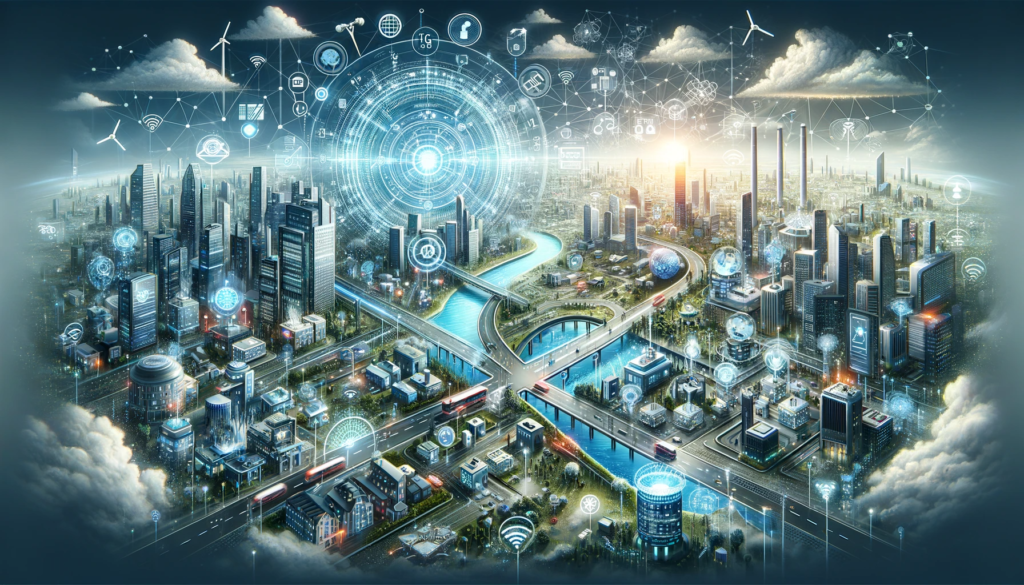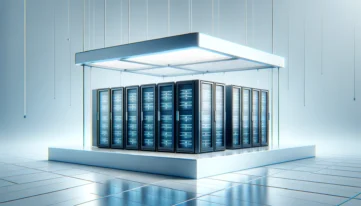As we approach 2024, the Internet of Things (IoT) is set to undergo a transformative evolution, revolutionizing how we interact with technology. IoT, which connects objects to the internet, has become deeply integrated into our lives, businesses, and infrastructure. The rapid growth and adoption of IoT continue to accelerate, driven by software, hardware, and connected devices. From smart homes and cities to healthcare and industrial automation, IoT is revolutionizing our daily activities and work processes.
In this blog post, we explore the future of IoT, highlighting industry trends for 2024. We’ll discuss the opportunities and challenges that come with rapid growth and technology integration. Join us in envisioning a future where technology seamlessly integrates into every aspect of our lives, creating a connected, efficient, and intelligent world.
Artificial Intelligence in IoT
As we approach 2024, the combination of IoT and Artificial Intelligence (AI), including Machine Learning (ML) and advanced technologies like Generative AI and Large Language Models (LLMs) such as ChatGPT, will unlock new possibilities in IoT. The large datasets from IoT devices enable ML algorithms to learn, adapt, and make real-time decisions. AI integration in IoT enhances predictive analytics, anomaly detection, and automated decision-making. For example, in industries, IoT devices with ML algorithms predict maintenance needs, reducing downtime and extending equipment lifespan. In healthcare, ML-driven IoT devices offer personalized patient care by analyzing real-time health data.
Generative AI and LLMs like ChatGPT provide insights, predict trends, and interact with users. In 2024, these AI models will make IoT devices smarter and more interactive. For instance, LLMs can develop advanced virtual assistants in smart homes, offering personalized recommendations based on user preferences. Generative AI simulates complex scenarios for IoT systems, aiding in designing and testing new IoT solutions. This is useful in urban planning and environmental monitoring, predicting outcomes based on IoT data for effective decision-making.
The integration of AI, ML, Generative AI, and LLMs in IoT represents a significant leap in smart technologies. These advancements enhance IoT device capabilities and offer new ways to benefit from the IoT ecosystem.
Edge Computing and 5G in IoT
In 2024, IoT will advance with edge computing and 5G integration. Edge computing processes data closer to its source, reducing latency and improving real-time computing. This is crucial for applications like autonomous vehicles and smart cities. 5G networks will revolutionize IoT connectivity. Its low latency and high-speed capabilities will enable seamless connectivity for a wide range of devices. This will drive innovation in sectors like healthcare, manufacturing, and smart cities. With increased bandwidth and reduced latency, 5G will enhance user experience and operational efficiency.
Enhanced Efficiency and Productivity through IoT
As we enter 2024, the importance of IoT in improving efficiency and productivity across different sectors is becoming more apparent. The development of intelligent systems through IoT represents more than just a technological advancement; it signifies a fundamental change in how businesses function. Through the integration of sensors and devices, companies can collect real-time data, allowing for faster and well-informed decision-making, streamlining operations, and minimizing waste.
In the manufacturing industry, the IoT has a significant impact. Machines and systems enabled with IoT technology can communicate seamlessly, resulting in reduced downtime and optimized production processes. This increased efficiency goes beyond being merely convenient—it provides a competitive advantage. It leads to tangible benefits such as cost reductions, making businesses more agile and adaptable to market demands. This efficiency gain is not limited to manufacturing; it extends to almost every industry, from logistics to agriculture, where IoT is revolutionizing operational standards.
Improving Customer Experiences
IoT will greatly improve customer experiences in various industries by 2024. IoT has already had a significant impact on how businesses engage with customers, with smart solutions becoming commonplace. For example, smart homes allow remote control of appliances, and retail environments personalize shopping based on customer preferences. IoT is revolutionizing customer service. IoT’s power lies in using data from connected devices to customize services and products for individual needs. This personalization boosts customer satisfaction and loyalty. IoT enables companies to better understand and anticipate customer needs, providing unprecedented levels of service customization. Moving forward to 2024, this trend will continue to grow, with IoT becoming a vital part of the customer experience and transforming business-customer interactions.
IoT in Smart City Development
In 2024, IoT will continue to play a crucial role in developing smart cities. It drives efficiency and sustainability by integrating interconnected systems and devices. For example, smart cities use intelligent traffic management systems to reduce congestion and optimize traffic flow. They also utilize sensor data for efficient waste management. Smart city initiatives also focus on energy management, public safety, and resource utilization. These efforts create cities that are more efficient, convenient, and sustainable. IoT technologies have the potential to transform urban living in ways once imagined only in science fiction.
Increased Hardware Performance
As we enter 2024, IoT hardware advancements are expected to be transformative, similar to software developments. Key trends in IoT hardware include:
- Miniaturization and Energy Efficiency: Devices will become more compact and versatile without compromising power or functionality. Low-power IoT devices will be crucial for wearables and remote sensors.
- Advanced Sensors and Actuators: Sensors will become more sophisticated, detecting a wider range of variables with greater accuracy. Actuators will improve in speed, precision, and durability.
- Enhanced Connectivity Solutions: 5G will dominate connectivity, but other technologies like LPWAN, NB-IoT, and advanced Wi-Fi standards will also improve. IoT devices will connect reliably even in challenging environments.
- Integrated AI Hardware: AI-optimized hardware, such as edge AI chips, will become more prevalent. This enables faster decision-making and reduces reliance on cloud-based processing.
- Rugged and Environment-Resistant Designs: IoT devices will be designed to withstand harsh conditions, including extreme temperatures, moisture, and mechanical shocks.
- Flexible and Wearable Electronics: Flexible electronics will enable IoT applications in wearable technology, conforming to different shapes and surfaces.
In summary, the hardware innovations in IoT for 2024 will enhance performance, capabilities, and expand applications into new areas.
The Growing Importance of IoT Security
In the expanding IoT world, security is a major concern. As IoT ecosystems become more complex and interconnected, the risks of cybersecurity breaches and unauthorized access to devices increase. In 2024, there will be a greater emphasis on securing IoT devices and networks.
Future IoT designs will prioritize strong security measures, such as end-to-end encryption, device authentication protocols, and regular security updates. The use of blockchain technology for identity verification and secure data transfers will also become more popular. These measures are crucial for protecting the confidentiality and integrity of data transmitted through IoT devices. As IoT becomes more integrated into our lives, it is essential to intensify our focus on security to combat evolving cybersecurity threats.
Looking ahead to 2024, it is evident that the IoT landscape is on the verge of undergoing transformative changes. The areas where IoT will continue to have a significant impact include enhanced efficiency and productivity, data-driven decision-making, improved customer experiences, healthcare transformations, and the development of smart cities.
The integration of AI and ML, including cutting-edge technologies like Generative AI and LLMs, will enhance the capabilities of IoT, making devices smarter and more interactive. The rise of edge computing and the integration of 5G technology are set to revolutionize how IoT devices communicate and process data. These advancements are not just technological feats; they represent a shift towards a more connected, efficient, and intelligent world.
In 2024, we can expect IoT to continue its trajectory as a major force in shaping our digital future. The possibilities are vast and exciting, and it is important to embrace and prepare for these changes now. The IoT revolution is upon us, promising to redefine our relationship with technology in ways that we have yet to imagine.










